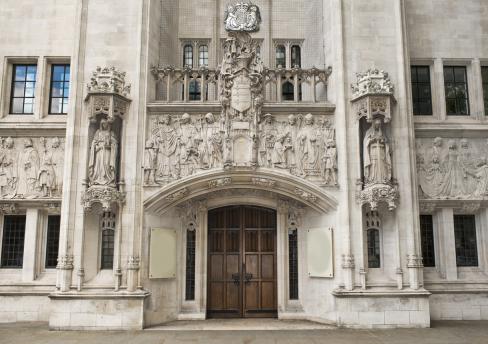
If a person finds himself in a situation where a court decree has been granted against him without his knowledge, he might raise a separate action in the Court of Session to try to have the decree reduced. If the decree has been extracted, ie, an official copy has been obtained for the purpose of carrying out enforcement against the person, it might also be necessary to take steps to prevent this.
The person will, no doubt, feel relieved if they are successful in obtaining reduction of the court decree. However that is not necessarily the end of the matter as the opponent might still have a claim which needs to be determined and resolving this can take some time. The recent case of James Carr and Others v R H Independent Healthcare Limited [2018] CSOH 82 looked at whether parties can proceed with the same court action after reduction of a decree in circumstances where the decree was extracted before reduction.
Background to the case
The case was a personal injury action brought by relatives of a deceased lady against the operators of a care home in which she had resided. The claim was raised shortly before the expiry of the triennium with the summons being served by recorded delivery. It was lodged for calling and, after no defences were lodged, decree in absence was pronounced in the sum of £1,100,000 with interest. Decree was extracted and the pursuers' solicitors wrote to the defenders advising them of the decree.
The defenders then raised an action seeking reduction of the personal injury decree. They claimed that they had no had knowledge of service of the summons because of the actions of a disgruntled employee and they were successful in having the personal injury decree reduced. Following this there was correspondence between the parties solicitors and various enquiries were undertaken in relation to the pursuers' claim in the belief that the personal injury action was sisted.
It was only when the pursuers' solicitors contacted the court to try to have the sist recalled that they were told that the personal injury action was not sisted and it was procedurally impossible for them to do anything else with it because the issuing of a final extract decree had meant that it was at an end. When they queried this they were advised that the matter had been referred to an administrative judge who had confirmed that a decree of reduction does not mean that an original action is resurrected and the issue of a final extract brought a process to an end.
This left the pursuers in a difficult position. They no longer had a decree in the personal injury action and, although no defence had been lodged, they were being told they could not proceed with it. Although they maintained that the personal injury action remained current, they raised a new action to try to progress their claims. This appeared to be the only thing that could be done in the situation. A difficulty with raising a new action was that it was potentially time barred. As the new action progressed the defenders did, indeed, raise a timebar plea in respect of the new action.
A hearing was fixed in the new action to determine whether the personal injury action remained current.
Submissions about effect of reduction and the extract
The pursuers maintained that the personal injury action should be able to continue. Arguments they put forward included that the court needed to look at the whole circumstances of a case when deciding whether or not to grant reduction and that the overriding consideration was ensuring that justice was done. They said that the reduction could only reduce the decree in the personal injury action and could not dispose of it in its entirety. This was clear when you looked at the terms of what was sought in the summons in the reduction action. The decree of reduction should have the same effect as recall of the decree in the personal injury action. As to the status of the personal injury action, that remained at the stage it would have done if decree had never been granted and substantial justice would be better served by allowing that action to proceed.
By the time of the hearing the defenders had taken the position, similar to what was initially suggested by the court, that the personal injury action was not still in existence. They made submissions that this was the effect of the extraction of the decree as it concluded the action leaving nothing to be done and all that was possible at this stage was rectification of errors. Various authorities were referred to.
The Court's decision
The judge observed that the pursuers' approach to determination of the status of an extract decree was to concentrate on practical considerations in seeking to determine where substantial justice lay. He said that these practical consideration were important but it would be difficult to take such a pragmatic approach if there was a clear and binding authority that a final extract concludes an action so that nothing further can be done with the process. However, looking at the texts referred to, these did not cite any binding authority for this proposition. The authorities which were cited reflected a practice rather than a recognised principle.
In light of this the judge concluded that an extract cannot be regarded as anything more that a document evidencing what a court has ordered and nothing justified treating it as bringing a process to an end. Accordingly the parties could proceed with the person injury action.
Comments
This decision makes clear that the simple fact that a decree has been extracted does not mean that the action is concluded and cannot be proceeded with if the decree is then reduced. We would submit that this must be the logical position. When you consider the aim of seeking of reduction of a court decree is to have it annulled, it would seem odd to say that the action cannot proceed after reduction has taken place. Indeed, as was illustrated in the this case, the effect of any such rule could be to put a pursuer in a substantially disadvantaged position. This decision is therefore a useful one for litigation practitioners to be aware of, albeit that it relates to quite a technical point.
The content of this webpage is for information only and is not intended to be construed as legal advice and should not be treated as a substitute for specific advice. Morton Fraser LLP accepts no responsibility for the content of any third party website to which this webpage refers. Morton Fraser LLP is authorised and regulated by the Financial Conduct Authority.









